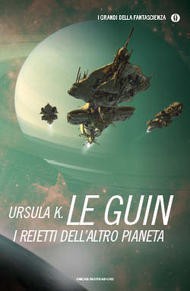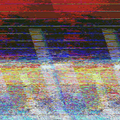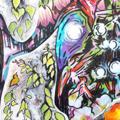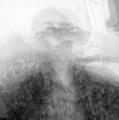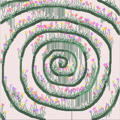cretinodicrescenzago reviewed The Dispossessed by Ursula K. Le Guin
Qualcunǝ era di sinistra, perché aveva letto della rivoluzione di Anarres
5 stars
[Vecchia recensione esportata da altro sito]
Iniziato entro un gruppo di lettura, lasciato a metà per sospensione del gruppo, ripreso in mano e terminato di volata durante l'estate (con una pausa in corrispondenza del mare), ne è valsa la pena fino all'ultima virgola – perché The Dispossessed potrebbe essere uno dei miei romanzi preferiti di sempre, a prescindere da epoca lingua e genere. Già sapevo dal ciclo di Terramare che zia Ursula è una maestra a rendere affascinanti e tangibili le vite quotidiane di società immaginarie ma plausibili, e a farci empatizzare con le piccole grandi storie di personaggi eminentemente umani per quanto ben lontani dal nostro vissuto (il che è la forma più bella di escapismo: quella che poi ci riporta a casa), ma a questo giro la nostra ha toccato due corde che per me valgono tanto: non solo The Dispossessed è uno racconto antropologico che contrappone una …
[Vecchia recensione esportata da altro sito]
Iniziato entro un gruppo di lettura, lasciato a metà per sospensione del gruppo, ripreso in mano e terminato di volata durante l'estate (con una pausa in corrispondenza del mare), ne è valsa la pena fino all'ultima virgola – perché The Dispossessed potrebbe essere uno dei miei romanzi preferiti di sempre, a prescindere da epoca lingua e genere. Già sapevo dal ciclo di Terramare che zia Ursula è una maestra a rendere affascinanti e tangibili le vite quotidiane di società immaginarie ma plausibili, e a farci empatizzare con le piccole grandi storie di personaggi eminentemente umani per quanto ben lontani dal nostro vissuto (il che è la forma più bella di escapismo: quella che poi ci riporta a casa), ma a questo giro la nostra ha toccato due corde che per me valgono tanto: non solo The Dispossessed è uno racconto antropologico che contrappone una società liberal-capitalista post-scarsità (e in tralice la speculare società comunista autoritaria) a una comunità anarchica libertaria che sopravvive caparbia nella ristrettezza, non solo tanta parte del conflitto verte su come una società orizzontale e federativa può nondimeno ricadere nella gerarchia o comunque nella stagnazione, non solo ci sono scene straordinarie e terribili di vita agraria e di movida accademica – ma in più tutto questo lo esperiamo attraverso la storia di formazione del nostro buon Shevek, che a mio parere di uomo autistico è palesemente un individuo neurodivergente con la classica combinazione di interessi assorbenti + rispetto ingenuo per le regole + penetrante senso critico, e buona parte del suo viaggio personale consiste nel costruirsi una propria comunità stretta come punto di partenza per cambiare in meglio il suo mondo (e poi il suo sistema solare) un passo per volta. È stato straordinario sentirmi così rappresentato in Shevek e Takver che diventano il cuore aggregante della loro famiglia elettiva ad Abbenay, e commuovermi fino alle lacrime per le orazioni di Shevek sul senso della lotta odoniana e la volontà costantemente rinnovata di creare un mondo nuovo e migliore – un elogio dell'anarchia positiva più potente, poetico e toccante di mille manifesti. Certo, ci sono alcune piccole sbavature d'intreccio (o grandi, nel caso di una certa scena violenta nel capitolo otto), ma se ho apprezzato di gusto un grande romanzo antitetico alla mia sensibilità quale Starship Troopers a maggior ragione sarò clemente con un testo così tanto nelle mie corde e mi "limiterò" a problematizzarlo senza fustigarlo – e a recuperare opere che siano in continuità con questo filone.
Grazie di questo capolavoro, zia Ursula; i compagni e le compagne se ne vanno ma restano nei nostri cuori, e le nostre idee continuano a indirizzarci.
